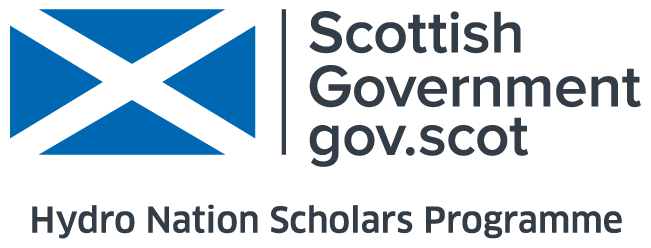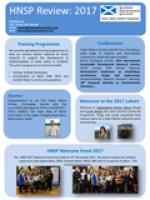November 2025
Groundwater Levels in Eastern Scotland at Lowest in Over a Decade, New Study Shows
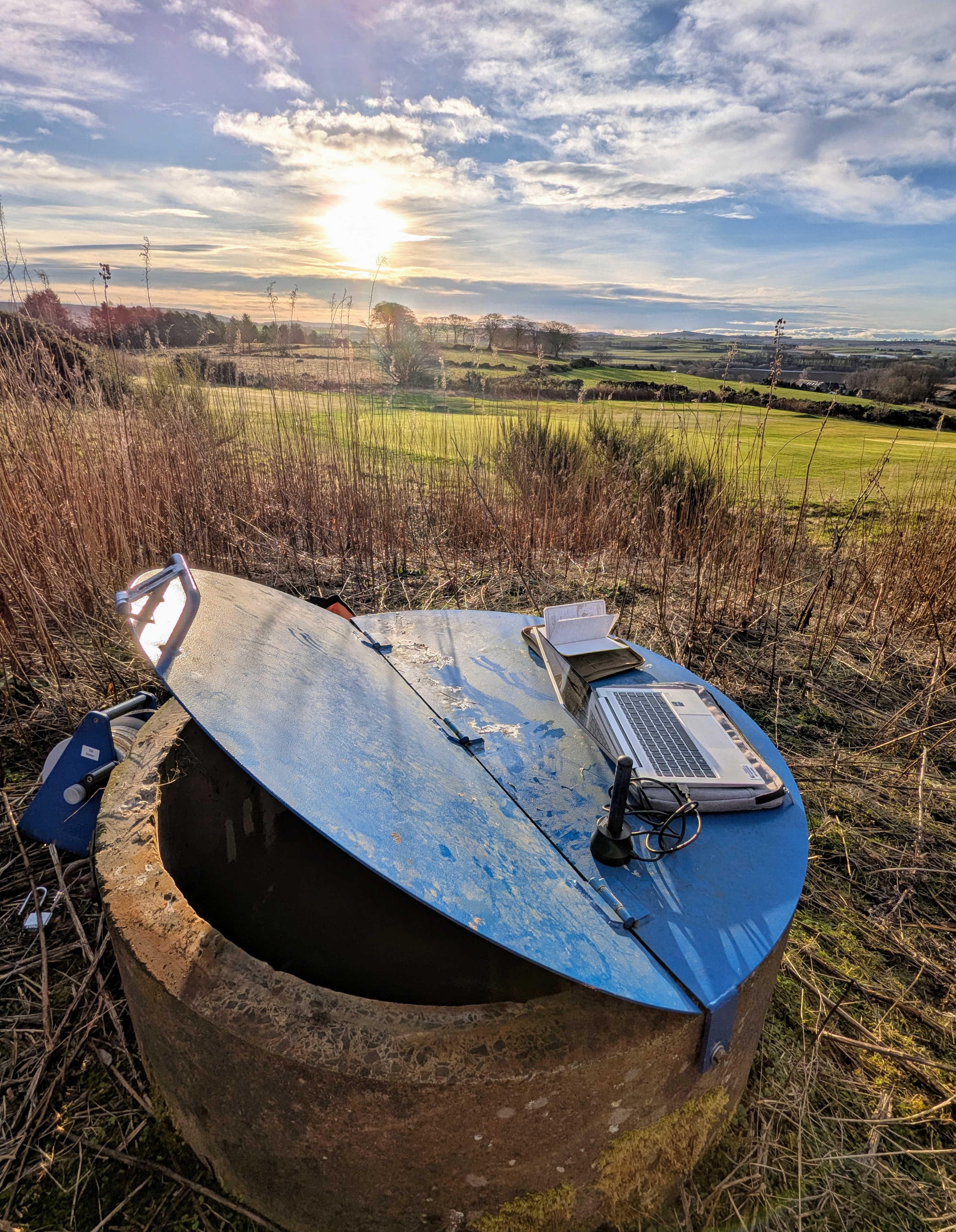
New research led by the University of Aberdeen (Johnson et al., 2025) has revealed that groundwater levels across eastern Scotland in 2025 have dropped to their lowest point in more than ten years. The findings, published in a new policy brief, highlight the urgent need to strengthen how groundwater is represented in Scotland’s National Water Scarcity Plan.
The study shows that a dry winter followed by an unusually warm and dry spring pushed groundwater levels to near-record lows over the summer. In September, SEPA classified 17 eastern catchments as being in Significant Scarcity. Groundwater plays a critical role in Scotland’s water security, supporting summer river flows and supplying more than 15,000 private water supplies. While shallow wells remain vulnerable to drought, groundwater generally provides a more resilient source than surface water during scarcity events.
The policy brief outlines several actions to help improve drought resilience, including enhancing groundwater monitoring networks, expanding real-time data access, prioritising groundwater modelling in stressed catchments, and encouraging maintenance and upgrades of private water supplies.
This research was funded by the Hydro Nation Scholars Programme and the University of Aberdeen, with collaboration from the British Geological Survey, the James Hutton Institute, and SEPA. The findings provide timely evidence to support Scotland’s ongoing Hydro Nation ambitions in a changing climate.
April 2025
HNSP Programme Impact Report
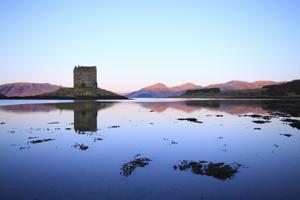
Since 2013, the Hydro Nation Scholars Programme (HNSP) has been at the forefront of water research, fostering innovation and policy impact in Scotland and beyond. Over the past 12 years, the HNSP has supported more than 50 scholars, producing cutting-edge research that has shaped government policies, industry practices, and environmental strategies.
The latest Impact Report (2013–2025) led by Maricela Blair, Hydro Nation Policy Officer, highlights how HNSP scholars are addressing key water challenges, from emerging pollutants to climate resilience, the programme’s influence on policy… Read More
October 2023
HNSP Residential Training Returns
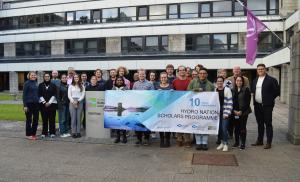
In early October, 22 Hydro Nation Scholars gathered at the James Hutton Institute in Aberdeen for the first in-person Residential Training course since 2019. The two-day course entitled “Translating Research into Policy and Practice” combined presentations by internal and external speakers and Hydro Nation Alumni, case studies, and practical work to learn about and explore the process of sharing knowledge, evidence, ideas and expertise with non-academic communities effectively to feed into policy development and support positive change. The programme was tailored around… Read More
Hydro Nation Scholar Recognised for Accomplishments, Knowledge Exchange
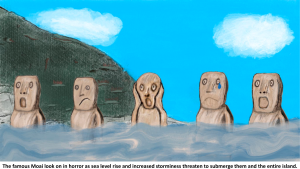
On 8th September 2023, Hydro Nation Scholar, Sarah Crowe (University of Dundee), received a commendation in the Climate Creatives Challenge #3. This is a series of design challenges to help support new and novel approaches for communicating the impacts of climate change and the benefits of adaptation, mitigation and resilience. For this challenge, entrants had to pick a historic environment or building and communicate how it could be impacted by climate change and how it could be made more resilient. The judges were looking for entrants to explore ways of communicating the topic which go… Read More
November 2021
Hydro Nation Scholar Welcome Event - 2022
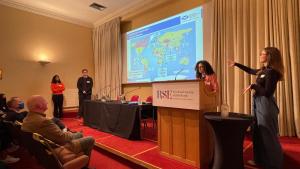
This month the annual Hydro Nation Scholars Programme welcome event for the new intake of PhD students was held at the Royal Society, Edinburgh. The event is organised by the Hydro Nation International Centre Scotland and provides an opportunity for new Scholars* to be introduced to the programme, their fellow peers, and a wide range of stakeholders from Scotland’s water and research sector. For the first time in over 2 years the Scholars were able to see each other in person following the onset of the COVID-19 pandemic! Our Scholars were formally… Read More
July 2020
Scholar acts as an expert contributor and reviewer for POST
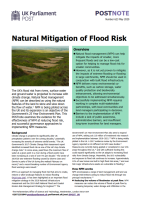
Hydro Nation scholar, Kirsty Holstead, recently acted as an expert contributor and reviewer for Westminster’s Parliamentary Office for Science and Technology (POST) at Westminster.
Kirsty provided and reviewed evidence for a policy note for the Environment, Food and Rural Affairs Committee relating to community involvement in natural mitigation of flood risk management. She was one of 18 experts chosen in the UK.
Her research on farmers’ perspectives of natural flood management [paper] as well as… Read More
Hydro Nation scholar co-authors book chapter
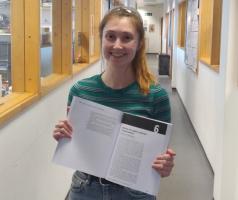
A book containing a chapter co-authored by Hydro Nation Scholar Victoria Porley and her principal supervisor Prof. Neil Robertson has recently been published. The book, entitled “Nanostructured Photocatalysts”, covers a wide range of topics including materials development and the applications of photocatalysts (semiconductor materials which facilitate chemical reactions when illuminated) to solar fuels and environmental remediation, particularly with regards to water treatment. The chapter written by Victoria Porley, “Substrate and support materials for photocatalysis”, explores how… Read More
Sharing findings around pharmaceuticals in the environment
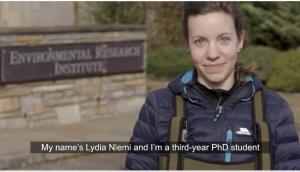
A video on Hydro Nation Scholar Lydia Niemi’s PhD research was made by the Scottish Policy and Research Exchange. This video is part of an initiative to connect researchers and policymakers in Scotland, and aims to facilitate knowledge exchange, increase research impact and improve policy outcomes. Lydia met with representatives from the Scottish Parliament Information Centre (SPICe), and wrote a… Read More
November 2019
The Future of Water Stewardship aquaNow audience
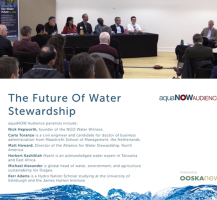
Hydro Nation Scholar Kerr Adams was a panel member on the second panel discussion in this year’s series of aquaNOW Audiences on 11th November at The Dovecot Studios in Edinburgh, Scotland. The topic was "The Future Of Water Stewardship”. The discussion took place ahead of the Alliance for Water Stewardship (AWS) Global Water Stewardship Forum on 12th and 13th November, also in Edinburgh. More detail on the other panelists can be found… Read More
June 2019
UNDRR Global Forum for Disaster Risk Reduction, Geneva, 2019 RISK Award Winner – Hydro Nation Scholar Nandan Mukherjee
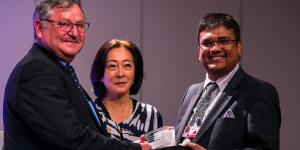
Hydro Nation Scholar Nandan Mukerjee a PhD candidate at the University of Dundee received the RISK Award at the closing ceremony of the UNDRR Global Forum for Disaster Risk Reduction in Geneva on Friday 17 May 2019.
Current approaches for managing coastal disasters often focus on building large-scale engineered constructions. Examples include flood walls, embankments or cyclone shelters on raised platforms. While these initiatives can save lives, they rarely address underlying causes of vulnerability. The 2019 RISK Award shifts that focus to a solution that is more… Read More
New publication by Hydro Nation Scholar, Yuan Li: Utilizing Low-Cost Natural Waste for the Removal of Pharmaceuticals from Water: Mechanisms, Isotherms and Kinetics at Low Concentrations
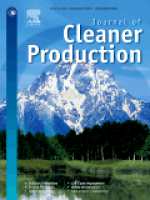
Hydro Nation Scholar, Yuan Li is co-author on a paper published in Journal of Cleaner Production entitled: Hydraulic Utilizing Low-Cost Natural Waste for the Removal of Pharmaceuticals from Water: Mechanisms, Isotherms and Kinetics at Low Concentrations. This paper with co-authorship from various academic institutions outlines how the use of abundant natural wastes as environmentally friendly products promotes a circular green economy and cleaner production. This publication is… Read More
HNSP Scholar - Victoria Porley Wins Young Engineer Award 2019

Victoria Porley has won the Young Water Engineering Award for the best oral presentation at the International Water Association 20th Annual Young Water Professionals Conference and will collect her award at the ceremony in London in September 2019.
To view Victoria's winning presentation please see here.
May 2019
Sixth Hydro Nation Scholar Concludes Studies
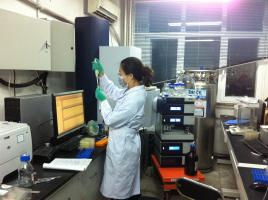
Yuan Li, a PhD candiate at the University of the Highlands and Islands, became the sixth scholar of the Hydro Nation Scholars Programme to conclude her studies on 14th May 2019.
November 2018
Fifth Hydro Nation Scholar Concludes Studies
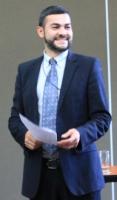
Juan Carlos Sanchez Ramierez, a PhD candidate at the University of Dundee, became the fifth scholar of the Hydro Nation Scholars Programme to conclude his studies on 30th November 2018.
Fourth Hydro Nation Scholar Concludes Studies
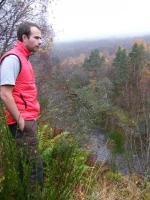
Bas Buddendorf, a PhD candidate at the University of Aberdeen, became the fourth scholar of the Hydro Nation Scholars Programme to conclude his studies on 29th November 2018.
February 2018
Hydro Nation Scholarship Programme 2018 – Extra Call
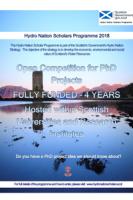
Applications are now welcome for project proposals based on our topic themes 2, 4 and 7:
- Innovative Monitoring and Financial Approaches for the Improved Maintenance of Water Infrastructure Assets
- Water Management in the Food and Drink Industry
- Innovation in Water and Health
Full details of the programme can be found on our apply page.
January 2018
Second Hydro Nation Scholar Concludes Studies

Munire Nazli Koseoglu, a PhD candidate at the School of Geoscience of the University of Edinburgh and Scotland's Rural College, recently became the second scholar of the Hydro Nation Scholars Programme to finish her studies
Third Hydro Nation Scholar Concludes Studies

Ruby Mahana Moynihan, a PhD candidate at the Edinburgh School of Law at the University of Edinburgh, recently became the third scholar of the Hydro Nation Scholars Programme to finish her studies
November 2017
New publication by Hydro Nation Scholar, Bas Buddendorf: Hydraulic Modelling of the Spatial and Temporal Variability in Atlantic Salmon Parr Habitat Availability in an Upland Stream
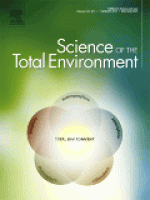
Hydro Nation Scholar, Bas Buddendorf is co-author on a paper published in Science of the Total environment, entitled: Hydraulic Modelling of the Spatial and Temporal Variability in Atlantic Salmon Parr Habitat Availability in an Upland Stream. This paper with co-authorship from various academic institutions outlines how habitat for salmon parr is strongly influenced by flow regime and bed morphology, high resolution modelling is essential to characterize upland stream hydraulics, velocity is not a limiting factor for parr growth even in extreme years and how the proportion of usable… Read More
October 2017
New publication by Hydro Nation Scholar, Aaron Neill: Using Spatial-Stream-Network Models and Long-Term Data to Understand and Predict Dynamics of Faecal Contamination in a Mixed Land-Use Catchment
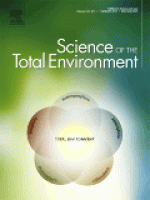
Hydro Nation Scholar, Aaron Neill has just had a paper published in the Science of the Total Environment journal, entitled: Using Spatial-Stream-Network Models and Long-Term Data to Understand and Predict Dynamics of Faecal Contamination in a Mixed Land-Use Catchment. This paper highlights that a key challenge is to understand and predict catchment-scale faecal contamination, employing long-term E. coli data and novel use of spatial-stream-network models. This publication is available to… Read More
